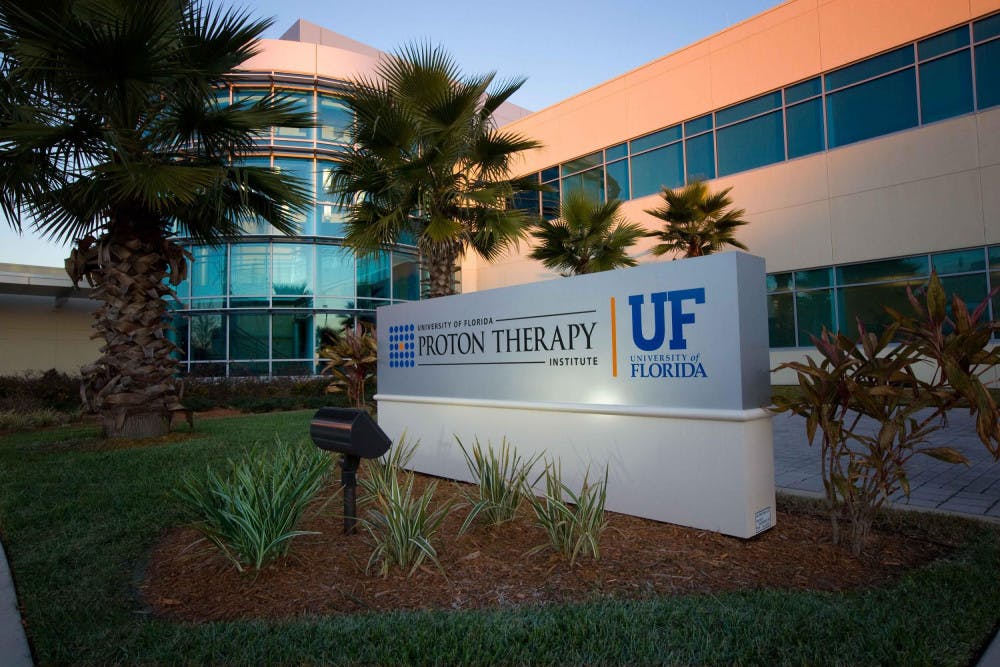UF announced last week it received a record $837.6 million to fund research for 2018.
The amount exceeds the previous record set in fiscal 2016 by $113.6 million — nearly 16 percent, according to a news release by the UF Office of Research.
Joseph Kays, the director of research communications in the UF Office of Research, said it received 5,393 proposals. Of those, about 2,760 were awarded.
David Norton, the vice president for research at the UF Office of Research, said the record is indicative of the university’s national standing and its faculty’s determination.
“I think it’s fair to say the University of Florida is in as good a position as it has ever been in relation to its peers and being competitive,” Norton said. “That number really represents several thousand faculty working really hard, being very competitive, to get those dollars.”
One faculty member who benefits from this is Dr. Nancy Mendenhall, medical director of the UF Health Proton Therapy Institute. She said her team was awarded $11.5 million to conduct experimental proton therapy treatment for prostate cancer — a treatment offered by only 24 locations in the country.
“Ultimately, our end goal is improving patient quality of life,” Mendenhall said.
Traditional radiation fires X-rays at a person. She said they can cause ionization, which can lead to cell death. Damage is done to cells where the beams enter and exit the body as well as the targeted tumor.
Because of the amount of energy lost in the process, patients are given higher doses than they need, which, in excessive amounts, can lead to other side effects. Mendenhall said these include bowel urgency, bowel frequency and rectal bleeding.
Proton therapy uses proton particles, which make up atoms. The treatment is drastically less invasive and only sends particles to the tumor, not through the body entirely.
Protons are 1,800 times heavier than the subatomic electrons they collide with, making them more efficient in use and allowing the mid-body stop. They are then transformed into things such as water.
“It’s just more targeted, more precise treatment,” Mendenhall said. “We can put more of the target dosage in a patient.”
Mendenhall said prostate cancer is the third-most common cancer in the U.S. as of 2018. She added that the top two are breast and lung cancer, and the three cancers have tendencies to alternate positions.
According to the American Cancer Society, about 164,690 new cases of prostate cancer will be diagnosed in the U.S. About 29,430 of these cases are expected to be fatal.
With the boost in research funding, Mendenhall’s team has more money to conduct paid patient surveys. Patients are measured from three perspectives — disease control, a gastrointestinal toxicity assessment and quality of life post-treatment — which measures the side effects of treatment.
Funding also goes to institutions that collect the treatment data. Proton therapy is about 1.3 times more expensive than conventional treatment, though this can vary by insurance providers and the number and intensity of treatments.
“Protons look incredibly promising on paper. We do need to have some clinical proof to show if they’re effective,” Mendenhall said. “We ask ourselves and the patients how much better is this, and is this worth it?”
For Norton, increased funding to projects such as Mendenhall’s means UF is moving in the right direction on the national stage.
He encouraged student and faculty involvement in research opportunities, citing them as reasons behind UF’s increasing public perception, including being ranked as a top-10 school by U.S. News & World Report.
“Our president is a member of the National Science Board,” Norton said. “Having leadership involved with those national organizations is important… in helping the direction of our country relative to higher (education), research and innovation.”
Follow Jacob Kovach on Twitter @jacob_kovach and contact him at jkovach@alligator.org.
The UF Proton Therapy Institute in Jacksonville, Florida, received $11.5 million in research funds for its experimental prostate cancer treatment.






